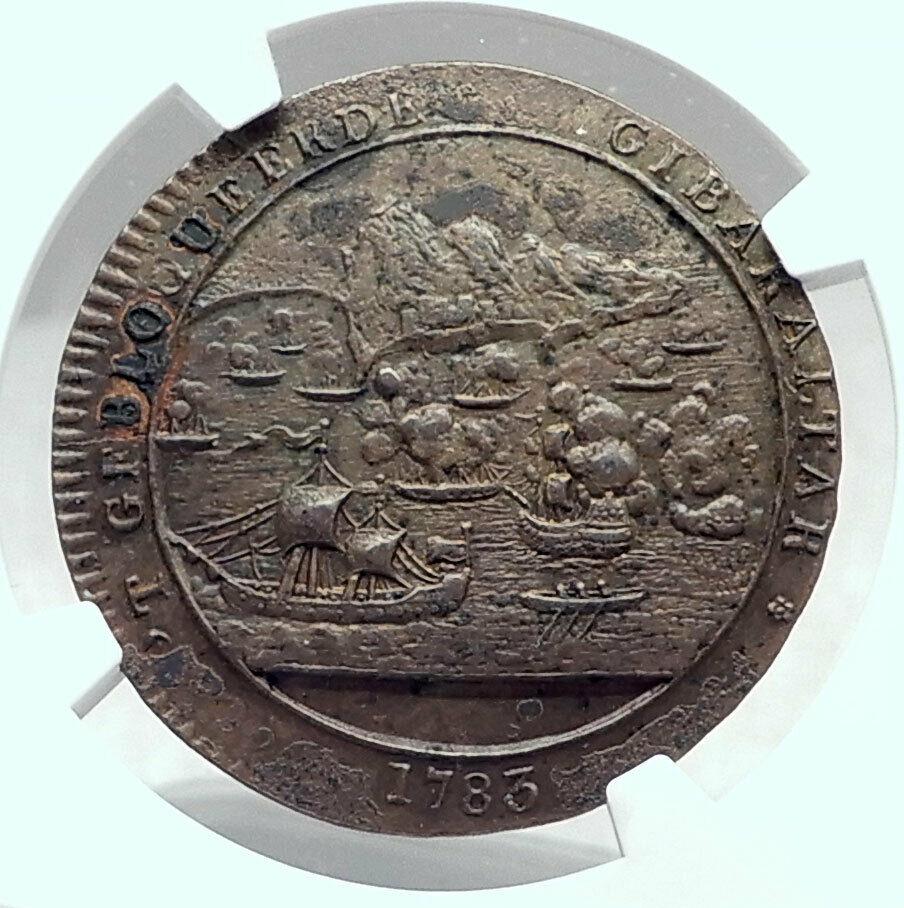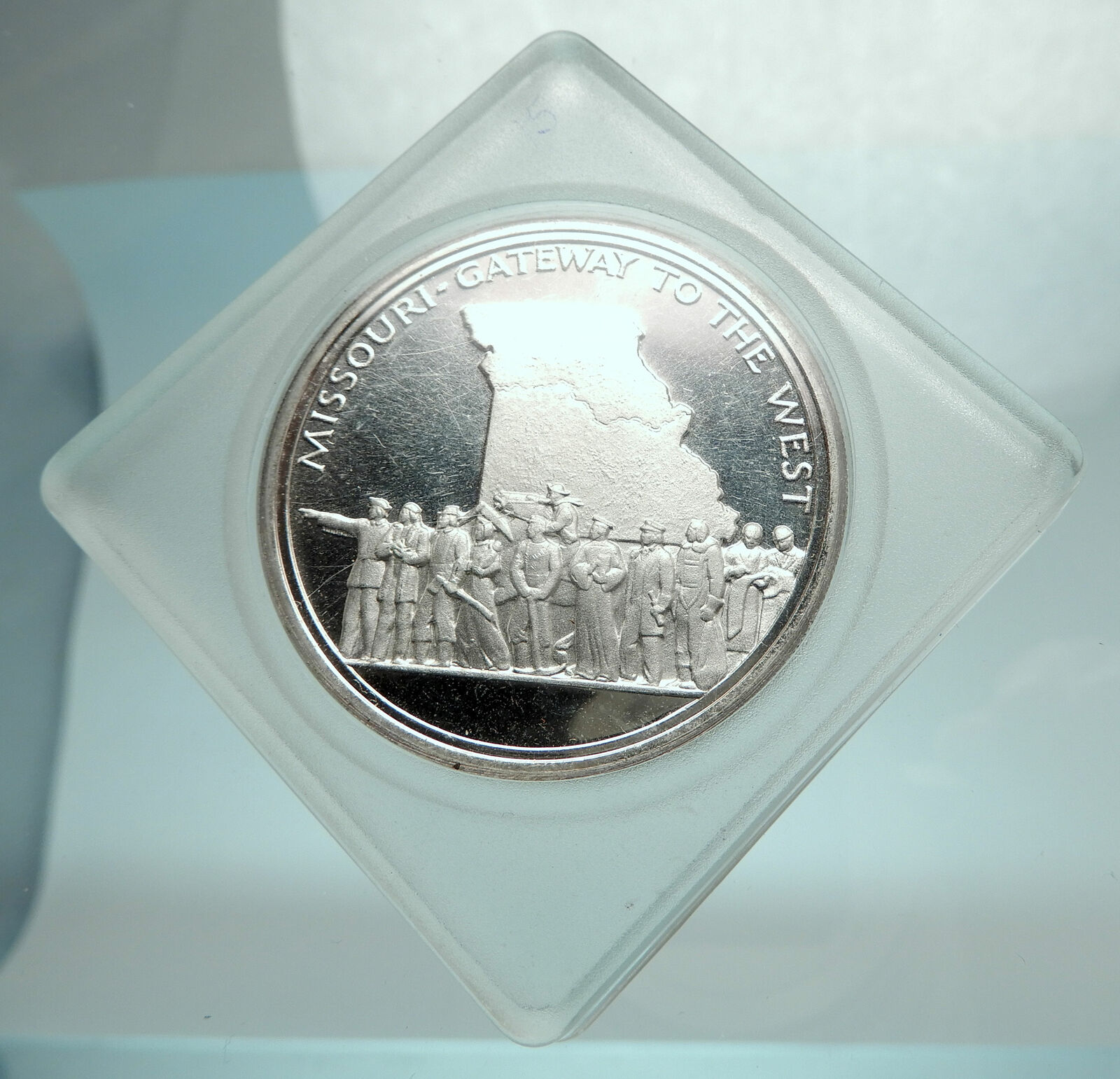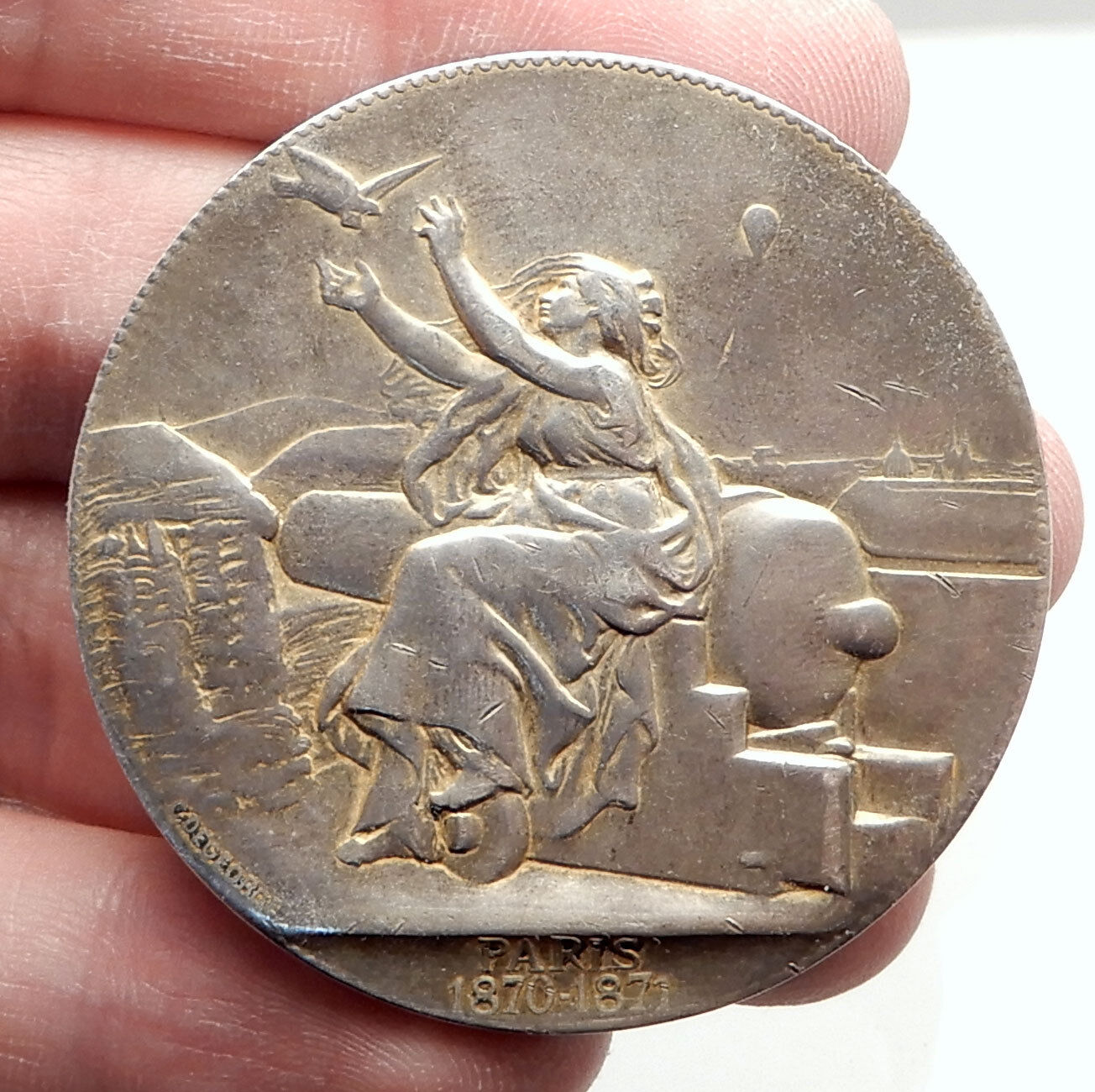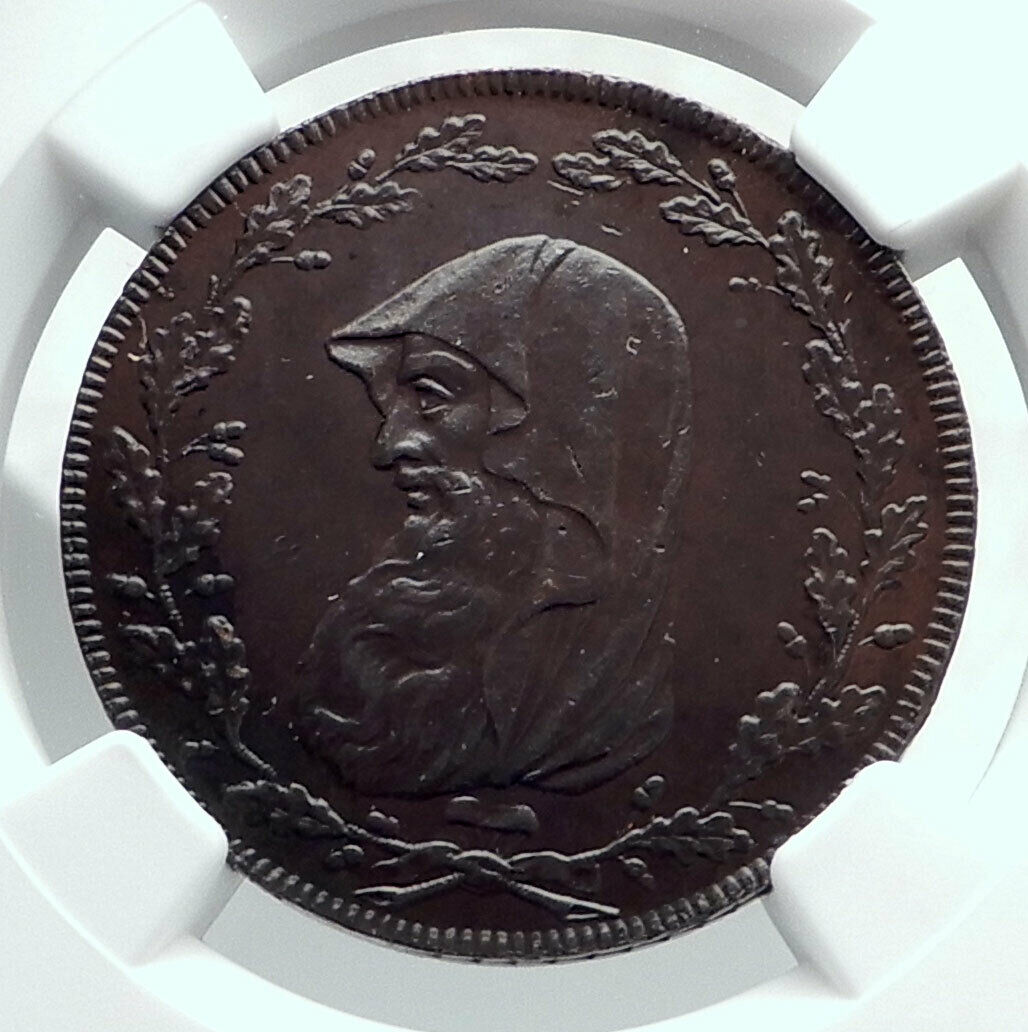|
Bolivia
Proclamation Medal
1851 Silver Medallic Potosi “1 Sole” 20mm (3.08 grams)
REPUBLICA BOLIVIANA, Nine stars and inscription around llama with big flower scene.
JURADA EN 28 DE OCTUBRE DE 1851, Fundamental Law book opened.
You are bidding on the exact item pictured, provided with a Certificate of Authenticity and Lifetime Guarantee of Authenticity.
 Simón José Antonio de la Santísima Trinidad Bolívar Palacios Ponte y Blanco (24 July 1783 – 17 December 1830), generally known as Simón Bolívar and also colloquially as El Libertador, was a Venezuelan military and political leader who played a leading role in the establishment of Venezuela, Bolivia, Colombia, Ecuador, Peru, and Panama as sovereign states, independent of Spanish rule. Simón José Antonio de la Santísima Trinidad Bolívar Palacios Ponte y Blanco (24 July 1783 – 17 December 1830), generally known as Simón Bolívar and also colloquially as El Libertador, was a Venezuelan military and political leader who played a leading role in the establishment of Venezuela, Bolivia, Colombia, Ecuador, Peru, and Panama as sovereign states, independent of Spanish rule.
Bolívar was born into a wealthy, aristocratic Criollo family and, as was common for the heirs of upper-class families in his day, was sent to be educated abroad at a young age, arriving in Spain when he was 16 and later moving to France. While in Europe, he was introduced to the ideas of the Enlightenment, which later motivated him to overthrow the reigning Spanish in colonial South America. Taking advantage of the disorder in Spain prompted by the Peninsular War, Bolívar began his campaign for independence in 1808, appealing to the wealthy Creole population through a conservative process,. The campaign for the independence of New Granada was consolidated under the auspices of Francisco Mariño y Soler with the victory at the Battle of Boyacá on 7 August 1819. Later he established an organized national congress within three years. Despite a number of hindrances, including the arrival of an unprecedentedly large Spanish expeditionary force, the revolutionaries eventually prevailed, culminating in the patriot victory at the Battle of Carabobo in 1821, which effectively made Venezuela an independent country.
Following this triumph over the Spanish monarchy, Bolívar participated in the foundation of the first union of independent nations in Latin America, Gran Colombia, of which he was president from 1819 to 1830. Through further military campaigns, he ousted Spanish rulers from Ecuador, Peru, and Bolivia, the latter of which was named after him. He was simultaneously president of Gran Colombia (present-day Venezuela, Colombia, Panama and Ecuador) and Peru, while his second-in-command, Antonio José de Sucre, was appointed president of Bolivia. Bolívar aimed at a strong and united Spanish America able to cope not only with the threats emanating from Spain and the European Holy Alliance but also with the emerging power of the United States. At the peak of his power, Bolívar ruled over a vast territory from the Argentine border to the Caribbean Sea.
Bolívar is viewed as a national icon in much of modern South America, and is considered one of the great heroes of the Hispanic independence movements of the early 19th century, along with José de San Martín, Francisco de Miranda and others. At the end of his life, Bolívar despaired of the situation in his native region, with the famous quote “all who served the revolution have plowed the sea”. In an address to the Constituent Congress of the Republic of Colombia, Bolívar stated “Fellow citizens! I blush to say this: Independence is the only benefit we have acquired, to the detriment of all the rest.”
.svg/125px-Flag_of_Bolivia_(state).svg.png) Bolivia, officially the Plurinational State of Bolivia (Spanish: Estado Plurinacional de Bolivia), is a landlocked country located in western-central South America. The capital is Sucre while the seat of government is located in La Paz. The largest city and principal economic and financial center is Santa Cruz de la Sierra, located on the Llanos Orientales (tropical lowlands) a mostly flat region in the east of Bolivia. Bolivia, officially the Plurinational State of Bolivia (Spanish: Estado Plurinacional de Bolivia), is a landlocked country located in western-central South America. The capital is Sucre while the seat of government is located in La Paz. The largest city and principal economic and financial center is Santa Cruz de la Sierra, located on the Llanos Orientales (tropical lowlands) a mostly flat region in the east of Bolivia.

It is constitutionally a unitary state, divided into nine departments. Its geography varies from the peaks of the Andes in the West, to the Eastern Lowlands, situated within the Amazon Basin. It is bordered to the north and east by Brazil, to the southeast by Paraguay, to the south by Argentina, to the southwest by Chile, and to the northwest by Peru. One-third of the country is within the Andean mountain range. With 1,098,581 km2 (424,164 sq mi) of area, Bolivia is the 5th largest country in South America and the 27th largest in the world.
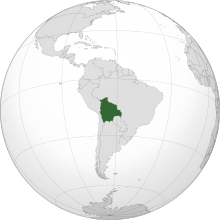 The country’s population, estimated at 11 million, is multiethnic, including Amerindians, Mestizos, Europeans, Asians and Africans. The racial and social segregation that arose from Spanish colonialism has continued to the modern era. Spanish is the official and predominant language, although 36 indigenous languages also have official status, of which the most commonly spoken are Guarani, Aymara and Quechua languages. The country’s population, estimated at 11 million, is multiethnic, including Amerindians, Mestizos, Europeans, Asians and Africans. The racial and social segregation that arose from Spanish colonialism has continued to the modern era. Spanish is the official and predominant language, although 36 indigenous languages also have official status, of which the most commonly spoken are Guarani, Aymara and Quechua languages.
Before Spanish colonization, the Andean region of Bolivia was part of the Inca Empire, while the northern and eastern lowlands were inhabited by independent tribes. Spanish conquistadors arriving from Cuzco and Asunción took control of the region in the 16th century. During the Spanish colonial period Bolivia was administered by the Royal Audiencia of Charcas. Spain built its empire in great part upon the silver that was extracted from Bolivia’s mines. After the first call for independence in 1809, 16 years of war followed before the establishment of the Republic, named for Simón Bolívar. Over the course of the 19th and early 20th century Bolivia lost control of several peripheral territories to neighboring countries including the seizure of its coastline by Chile in 1879. Bolivia remained relatively politically stable until 1971, when Hugo Banzer led a coup d’état which replaced the socialist government of Juan José Torres with a military dictatorship headed by Banzer; Torres was murdered in Buenos Aires, Argentina by a right-wing death squad in 1976. Banzer’s regime cracked down on leftist and socialist opposition and other forms of dissent, resulting in the torture and deaths of a number of Bolivian citizens. Banzer was ousted in 1978 and later returned as the democratically elected president of Bolivia from 1997 to 2001.
Modern Bolivia is a charter member of the UN, IMF, NAM, OAS, ACTO, Bank of the South, ALBA and USAN. For over a decade Bolivia has had one of the fastest economic growths in Latin America, however it remains one of the poorest countries in South America. It is a developing country, with a medium ranking in the Human Development Index, a poverty level of 38.6 percent, and it has one of the lowest crime rates in Latin America. Its main economic activities include agriculture, forestry, fishing, mining, and manufacturing goods such as textiles, clothing, refined metals, and refined petroleum. Bolivia is very rich in minerals, especially tin.
|





 Simón José Antonio de la Santísima Trinidad Bolívar Palacios Ponte y Blanco (24 July 1783 – 17 December 1830), generally known as Simón Bolívar and also colloquially as El Libertador, was a Venezuelan military and political leader who played a leading role in the establishment of Venezuela, Bolivia, Colombia, Ecuador, Peru, and Panama as sovereign states, independent of Spanish rule.
Simón José Antonio de la Santísima Trinidad Bolívar Palacios Ponte y Blanco (24 July 1783 – 17 December 1830), generally known as Simón Bolívar and also colloquially as El Libertador, was a Venezuelan military and political leader who played a leading role in the establishment of Venezuela, Bolivia, Colombia, Ecuador, Peru, and Panama as sovereign states, independent of Spanish rule. .svg/125px-Flag_of_Bolivia_(state).svg.png) Bolivia, officially the Plurinational State of Bolivia (Spanish: Estado Plurinacional de Bolivia), is a landlocked country located in western-central South America. The capital is Sucre while the seat of government is located in La Paz. The largest city and principal economic and financial center is Santa Cruz de la Sierra, located on the Llanos Orientales (tropical lowlands) a mostly flat region in the east of Bolivia.
Bolivia, officially the Plurinational State of Bolivia (Spanish: Estado Plurinacional de Bolivia), is a landlocked country located in western-central South America. The capital is Sucre while the seat of government is located in La Paz. The largest city and principal economic and financial center is Santa Cruz de la Sierra, located on the Llanos Orientales (tropical lowlands) a mostly flat region in the east of Bolivia. 
 The country’s population, estimated at 11 million, is multiethnic, including Amerindians, Mestizos, Europeans, Asians and Africans. The racial and social segregation that arose from Spanish colonialism has continued to the modern era. Spanish is the official and predominant language, although 36 indigenous languages also have official status, of which the most commonly spoken are Guarani, Aymara and Quechua languages.
The country’s population, estimated at 11 million, is multiethnic, including Amerindians, Mestizos, Europeans, Asians and Africans. The racial and social segregation that arose from Spanish colonialism has continued to the modern era. Spanish is the official and predominant language, although 36 indigenous languages also have official status, of which the most commonly spoken are Guarani, Aymara and Quechua languages. 

